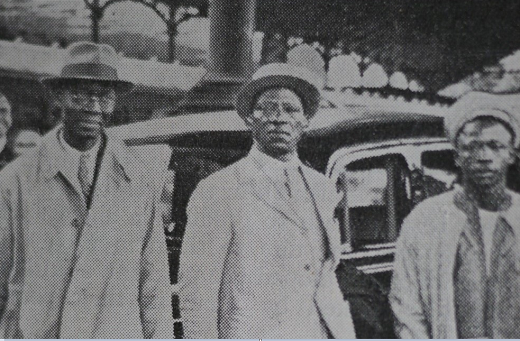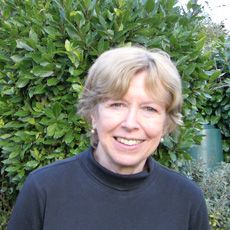ASCL Seminar: Doing fieldwork in the archive: print culture, publics and popular genres in colonial Lagos
Primary tabs

Image of I.B. Thomas (centre), proprietor and editor of Akede Eko newspaper in the 1940s. Photo: West Africa Magazine.
DUE TO UNFORESEEN CIRCUMSTANCES THIS EVENT HAS BEEN RESCHEDULED TO THURSDAY 7 OCTOBER. REGISTRATIONS FOR 30 SEPTEMBER REMAIN VALID.
This event will take place online. Registrees will receive a link a few days before the lecture.
A faded, crumbling collection of colonial newspapers might not seem to be the most fertile ground for ethnographic fieldwork. But if anthropology is interested in how new cultural things come into the world, and if ethnography is the best method for tracing their emergence, then fieldwork in an archive is not only possible but rewarding. The print culture of 1920s Lagos, Nigeria, was innovative and effervescent. Numerous new weekly and daily newspapers were started in this decade, responding to a growing literate population and a hectic political situation. Five of these papers were in the Yoruba language and sought to convene a wider audience than had previously been included in the Lagos reading public. They made extensive use of epistolary styles, recurrent serial formats, and intense modes of address to the reader. Karin Barber (University of Birmingham) will suggest that these characteristics lent themselves to creative experimentation, resulting in the establishment of several new genres – the most influential of which was the famous confessions of a fictional Lagos “harlot”, Sẹgilọla. The formation of this new narrative form can be traced from week to week in tandem with a rapidly-evolving social and political situation. Karin Barber will ask: why that particular textual form? Why at that particular moment in Lagos history?
Read the web dossier, compiled by the ASCL Library. on Early African Press.
Speaker
 Karin Barber is a cultural anthropologist and Centennial Professor of Anthropology at London School of Economics. Barber specialises in the Yoruba-speaking area of Nigeria. Before joining the Department of African Studies and Anthropology of the University of Birmingham, she was a lecturer at the University of Ife in Nigeria. Barber has written two introductory textbooks for the Yoruba language, and a number of books concerning Yoruba culture, and oral literature and written literature in Africa. She has been awarded a number of prizes for her publications, and has been recognised by her peers and the British government for her contributions to scholarship.
Karin Barber is a cultural anthropologist and Centennial Professor of Anthropology at London School of Economics. Barber specialises in the Yoruba-speaking area of Nigeria. Before joining the Department of African Studies and Anthropology of the University of Birmingham, she was a lecturer at the University of Ife in Nigeria. Barber has written two introductory textbooks for the Yoruba language, and a number of books concerning Yoruba culture, and oral literature and written literature in Africa. She has been awarded a number of prizes for her publications, and has been recognised by her peers and the British government for her contributions to scholarship.

